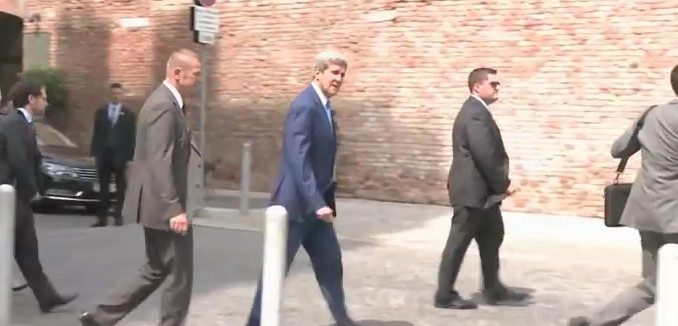Although the West and Iran agreed to extend nuclear negotiations a week past the June 30 deadline, major differences still exist between the two sides, USA Today reported Tuesday.
Iran has publicly rejected allowing international nuclear inspectors into military sites, and has demanded immediate sanctions relief. According to a fact sheet released by the White House after the previous round of negotiations in Lausanne, Switzerland, Iran had agreed to give the International Atomic Energy Agency “much greater access and information regarding Iran’s nuclear program, including both declared and undeclared facilities.” The West also insists that sanctions relief should be conditioned on Iranian compliance with the emerging nuclear deal.
The White House fact sheet stated Iran would limit its research and development and capacity to produce nuclear fuel for 10 years, refrain from building new enrichment facilities for 15 years and accept “robust inspections” for 25 years. Even after that period, Iran would agree not to develop or acquire nuclear weapons and would allow continued inspections, the White House said.
Khamenei, in his speech last week, said he rejects limiting his country’s nuclear advancement and research and development for as long as 10 years.
Mark Dubowitz, executive director of the Foundation for Defense of Democracies, told USA Today that the “fundamental gaps” in the positions enunciated by the United States and Iran could be a “time bomb (that) will explode when reality sets in” once a deal is concluded.
“You can never, in any agreement, draft language that is precise and comprehensive enough to cover any contingency,” Dubowitz said. “There has to be fundamental meeting of the minds between the parties in order for an agreement to be sustainable and durable.”
The latest round of negotiations began last week, following a speech given by Iranian Supreme Leader Ayatollah Ali Khamenei in which he set down a range of red lines backsliding from parameters agreed to by the parties in Lausanne. French Foreign Minister Laurent Fabius said that the terms laid out by Khamenei would would result in “a bad deal.”
In an op-ed published today in The Miami Herald, Josh Block, president and CEO of The Israel Project (which publishes The Tower), observed that the United States, rather than walking out of the negotiations following Khamenei’s defiant speech, “seems prepared to cede ground to Iranian intransigence.”
[Photo: wochit News / YouTube ]




